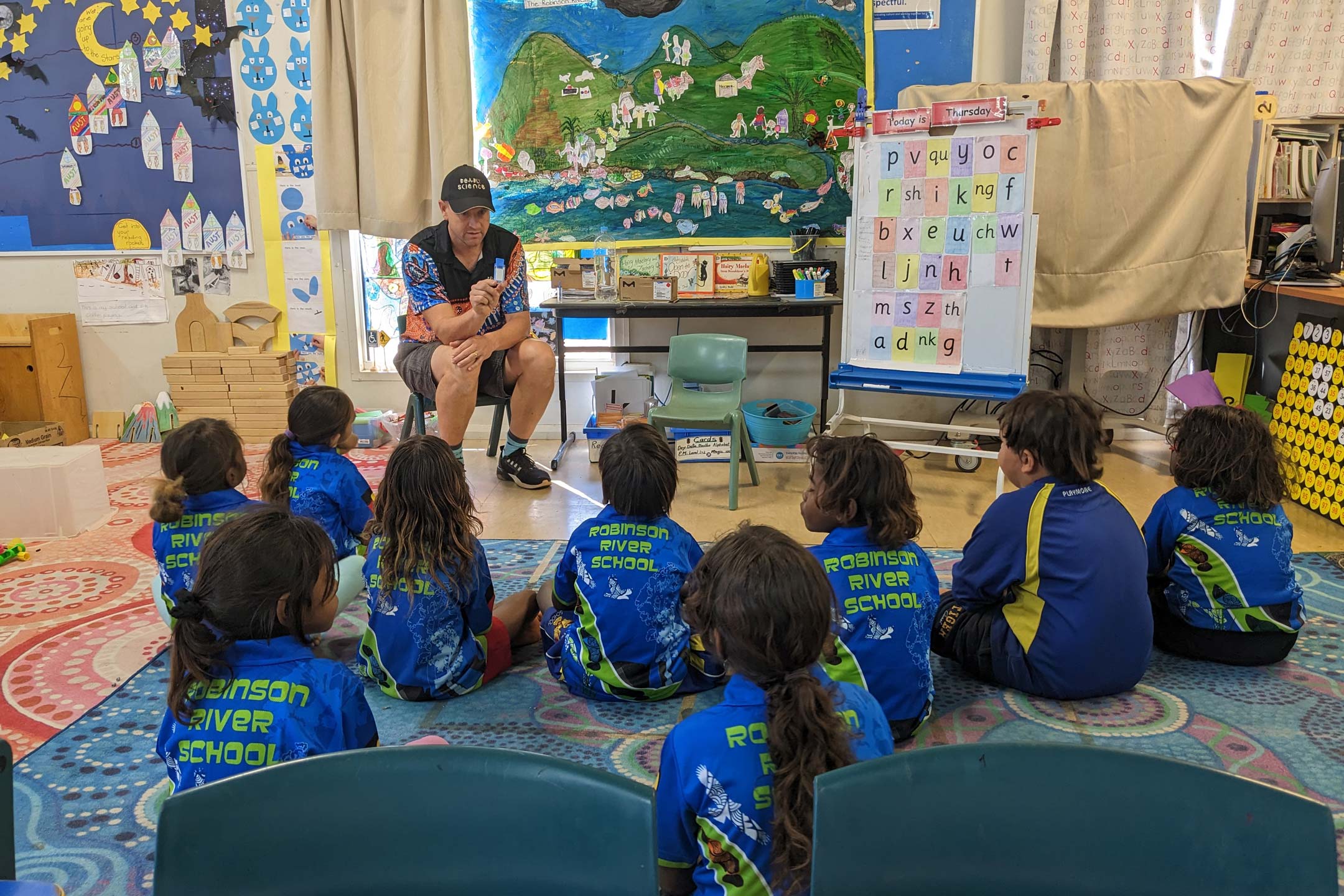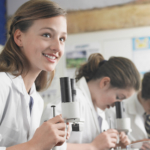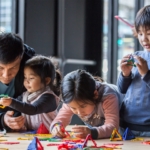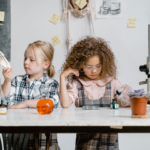
10 Aug Science Week: Soap Making in Robinson River Country
A project led by Indigenous Elders in the Robinson River region to share their knowledge, their ideas, and their care for the community.
Merck, a leading science and technology company, joined forces with the DeadlyScience team to launch the first DeadlyLabs kit in the Northern Territory. This project, led by Indigenous Elders in the Robinson River region, aims to share their knowledge, ideas, and care for the community.
In May, students and teachers from Robinson River School in rural Northern Territory had the opportunity to try out the new science kit. The kit explores the chemistry of soap-making and hygiene through activities and experiments rooted in Indigenous science. DeadlyLabs, supported by Merck, is designed to merge cultural knowledge and hands-on experiments in the classroom.
 About 50 students from three classes participated in the pilot program, combining traditional knowledge with safe classroom science to make soap and test its ability to remove bacteria from their hands. The experience was engaging and fun, with Aunties, Elders, rangers, and the entire community getting involved, teaching and learning together. The lessons were filmed so that Robinson River students can demonstrate soap-making and testing to other schools across Australia.
About 50 students from three classes participated in the pilot program, combining traditional knowledge with safe classroom science to make soap and test its ability to remove bacteria from their hands. The experience was engaging and fun, with Aunties, Elders, rangers, and the entire community getting involved, teaching and learning together. The lessons were filmed so that Robinson River students can demonstrate soap-making and testing to other schools across Australia.
Garawa and Gunindiri Elders played a key role in developing the DeadlyLabs kit, passing down their knowledge of cleanliness. University of Sydney chemist and science communicator Associate Professor Alice Motion provided expertise in classroom chemistry. The DeadlyLabs kit is the first in a series, with upcoming packages exploring physics, biology, and more.
The positive feedback from the Robinson River community has been heartwarming. They are proud to lead this pilot program, knowing that DeadlyLabs will become available for other communities to incorporate their own traditional knowledge.
Learning on Country was an essential part of the experience. Learners collected Dumbuyumbu leaves, the Garrwa language term for Australian sandalwood, a key ingredient for soap-making. Elders taught them how to find, identify, and collect the leaves sustainably while caring for the environment they grow in.
Back in the classroom, students made soap using beeswax, a soap base, and the collected leaves. They then used Coli-Count™ kits provided by Merck to test the soap’s effectiveness in removing bacteria from their hands, comparing it to unwashed hands, water-rinsed hands, and hands washed with conventional soap.
 The success of the DeadlyLabs pilot experiment has been met with excitement from Merck. The company is celebrating the launch of its Merck ANZ Reflect Reconciliation Action Plan and is thrilled with the learners’ enthusiasm and interest in the project.
The success of the DeadlyLabs pilot experiment has been met with excitement from Merck. The company is celebrating the launch of its Merck ANZ Reflect Reconciliation Action Plan and is thrilled with the learners’ enthusiasm and interest in the project.
 The DeadlyScience team is now refining the kit’s lesson plans and worksheets based on feedback from Robinson River School. They are also producing instructional videos to demonstrate the experiments and explain the science.
The DeadlyScience team is now refining the kit’s lesson plans and worksheets based on feedback from Robinson River School. They are also producing instructional videos to demonstrate the experiments and explain the science.
The team’s future plans include developing systems to produce, store, and distribute kits to other remote communities, allowing them to apply the kit with their own traditional knowledge. The DeadlyLabs project provides a unique opportunity for remote school students to engage with science in a hands-on way, moving away from pencils and paper and getting on Country.
The first kit not only offers students insights into the chemistry of everyday life but also helps them gain experience with lab safety, weighing and measuring materials, and gathering and recording data, all of which aligns with Australian curriculum requirements.
Moving forward, there will be opportunities for people and organizations to sponsor sending kits to more communities. Merck’s sponsorship of the kit’s development is just the beginning, and they hope to see more corporate entities, government organizations, the education sector, and people from all walks of life supporting DeadlyLabs and the broader work of DeadlyScience.




